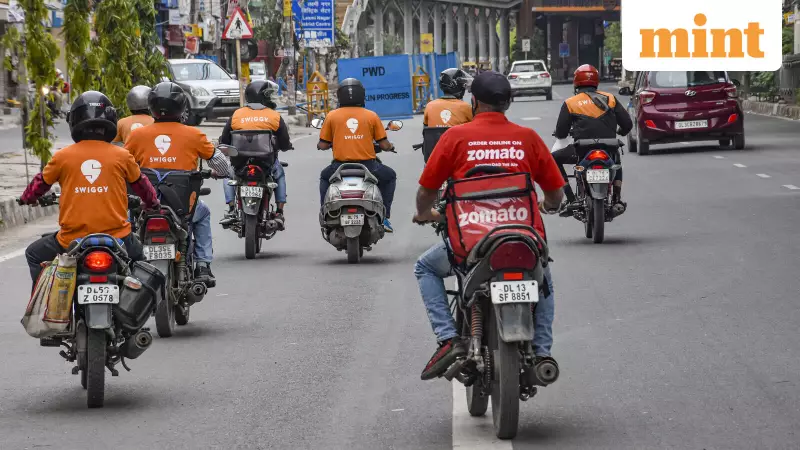
In a significant move prompted by India's escalating heat crisis, the government is launching a comprehensive scientific study to evaluate the safety of plastic food packaging used by major delivery platforms like Zomato and Swiggy. The investigation will assess whether containers, pouches, and bags can withstand extreme Indian weather without leaching harmful chemicals into food.
Scrutinizing Safety in a Hotter Climate
The study will be conducted by the Bureau of Indian Standards (BIS), the standardization arm of the Ministry of Consumer Affairs. Its primary objective is to determine if the existing Food Safety and Standards (Packaging) Regulations, 2018, remain adequate in the face of climate change. The research will specifically analyze how chemicals from various plastics—including polyethylene terephthalate (PET), recycled-PET, polycarbonate, and laminated films—migrate into food items like curries, gravies, and rice when exposed to intense heat and humidity.
This evaluation is considered urgent as the country has been experiencing record-breaking heat spells. Data from the India Meteorological Department (IMD) showed that February 2025 was the hottest and one of the driest in 125 years. The 2025 Lancet Countdown report further highlighted the severity, noting that India recorded an average of 19.8 heatwave days in 2024, with 6.6 of those directly attributed to human-induced climate change.
Major Implications for Food Delivery Giants
The findings of this study are poised to have a direct and substantial impact on India's booming food delivery sector. Any revision in packaging standards will result in higher compliance requirements for major platforms such as Zomato and Swiggy. This development is crucial for India's $22.48 billion plastic packaging market and the massive $48 billion food delivery market.
The Indian online food delivery sector is projected to grow at a compound annual growth rate (CAGR) of 27.3% to $537.23 billion between 2025 and 2034. This rapid expansion, driven by changing lifestyles and increased reliance on delivery services, makes packaging integrity a critical consumer safety issue.
Expert Opinions on the Necessary Shift
Experts have welcomed the government's initiative as both timely and essential. Ashim Sanyal, CEO of Consumer Voice, emphasized the need for localized testing, stating, "With India’s climatic profile changing and delivery-based food consumption becoming a daily norm, it’s essential to test packaging safety in real Indian conditions rather than rely only on global standards."
Echoing this sentiment, Ankit Gupta, President of the Authentication Solution Providers’ Association, noted that the initiative will strengthen consumer trust and drive innovation towards safer and more sustainable packaging. Packaging expert Ravi Singh Awadhwanshi clarified that while leaching occurs within defined safety limits, it increases significantly at elevated temperatures. He suggested that future regulations could include clear markings on packages to indicate their suitability for high temperatures and to enforce single-use for added safety.
The government's proactive stance signals a crucial step towards adapting public health and safety regulations to the undeniable challenges posed by a warming planet.





